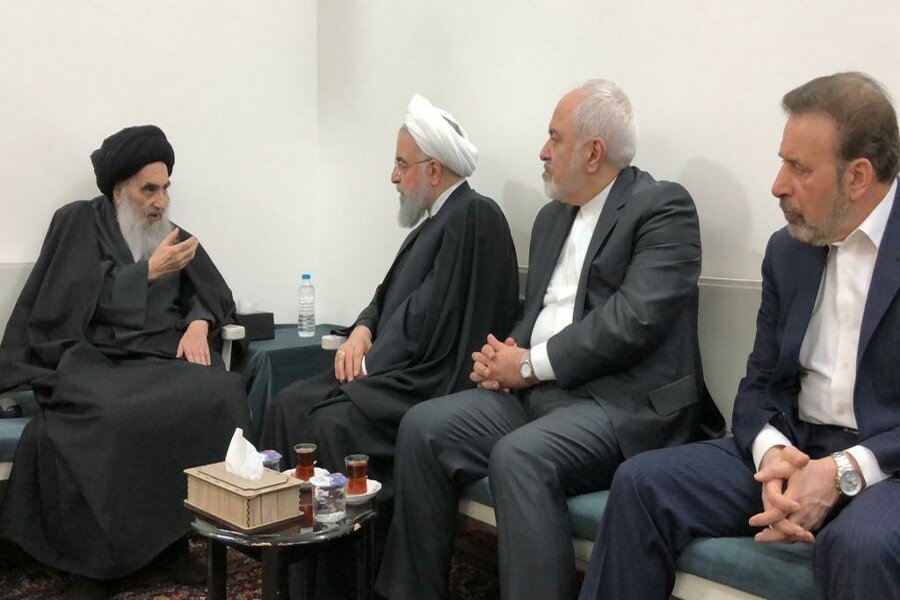Rouhani meets Grand Ayatollah Sistani in Najaf

TEHRAN – President Hassan Rouhani on Wednesday met with Iraq’s top Shia cleric, Grand Ayatollah Ali al-Sistani, in the holy city of Najaf on the last day of his historic visit to neighboring Iraq.
During the meeting, Rouhani briefed Ayatollah Sistani about the outcomes of his meetings with senior Iraqi officials.
He said his trip was aimed at expanding bilateral ties based on “friendship” and “good neighborliness”, Fars reported.
Ayatollah Sistani welcomed any step toward expansion of Iraq’s ties with its neighbors based on mutual interests, respect for the sovereignty and not interfering in the internal affairs of one another.
The ayatollah also pointed to the Iraqi people’s sacrifices in fighting Daesh (ISIL) and appreciated the role that Iraq’s friends played in defeating the terrorist group.
Sistani also underlined the necessity of adopting a “moderate approach” in dealing with regional issues.
Foreign Minister Mohammad Javad Zarif and Tehran’s Ambassador to Baghdad Iraj Masjedi were also present at the meeting.
Rouhani is the first Iranian president ever to have met with Ayatollah Sistani, who is considered Iraq’s most influential religious figure.
It was one of the highlights of President Rouhani’s Iraq trip, as Ayatollah Sistani usually do not agree to meet with top political figures – even those of his own country.
Sistani seldom makes public speeches and have not done interviews with media outlets. His views and statements are officially published through his representatives.
His fatwas have significantly contributed to shaping Iraq’s political structure.
In June 2014, when Daesh unleashed its campaign of terror and destruction in Iraq, Ayatollah Sistani called on his followers to rush to the national army’s help in the fight against the terrorist group.
The fatwa helped bring together Shia fighters, Sunni tribesmen as well as Christian and Izadi volunteers under the umbrella of the Popular Mobilization Units (PMU), commonly known as Hashd al-Sha’abi, to reverse Daesh’s gains and ultimately end the terror group’s territorial rule in Iraq in late 2017.
Rouhani’s meeting with Sistani is also considered to be a foundation for further expansion of ties between Iran and Iraq.
The president, upon his arrival to Najaf on Wednesday morning, also visited the holy shrine of Imam Ali (PBUH), the first Imam of Shia Muslims.
MH/PA
Leave a Comment